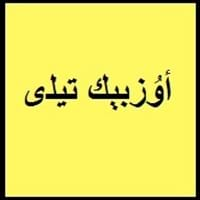Uzbek vs Cantonese
Countries
Turkey, Uzbekistan
Hong Kong, Macau
National Language
Afganistan, China, Kazakhstan, Kyrgyzstan, Russia, Tajikistan, Turkmenistan, Uzbekistan
China, Guangdong
Second Language
Not spoken in any of the countries
Not spoken in any of the countries
Speaking Continents
Middle East
Asia
Minority Language
Not spoken in any of the countries
Hawaii
Regulated By
Not Available
Civil Service Bureau, Government of Hong Kong, Official Language Division
Interesting Facts
- Uzbek is officially written in the Latin script, but many people still use Cyrillic script.
- In Uzbek language, there are many loanwords from Russian, Arabic and Persian.
- Cantonese have lot of slangs, many of them include words that do not make sense at all and some also have English in them.
- Even though Cantonese and Mandarin are dialects of Chinese, Cantonese has 8 tones instead of Mandarin's 4.
Similar To
Kazakh and Uyghur Languages
Chinese Language
Derived From
Not Available
Not Available
Alphabets in
Uzbek-Alphabets.jpg#200
Cantonese-Alphabets.jpg#200
Scripts
Arabic, Cyrillic, Latin
Chinese Characters and derivatives
Writing Direction
Not Available
Left-To-Right, Horizontal, Top-To-Bottom
How Are You?
Qalay siz?
你好吗?
Good Night
Hayirli tun
晚安
Good Evening
Hayirli kech
晚上好
Good Afternoon
Hayirli kun
下午好
Good Morning
Hayirli tong
早上好
I Love You
Sizni sevaman
我爱你
Excuse Me
Iltimos! Menga qarang
原谅我
Dialect 1
Tashkent
Guangzhou
Where They Speak
Not Available
outside mainland China
Where They Speak
Not Available
Hong Kong
Dialect 3
Ferghana
Hong Kong
Where They Speak
Not Available
Hong Kong
Native Name
أۇزبېك ﺗﻴﻠی o'zbek tili ўзбек тили (o‘zbek tili)
Kwang Tung Wa
Alternative Names
Annamese, Ching, Gin, Jing, Kinh, Viet
Guangfu, Metropolitan Cantonese
French Name
ouszbek
Not Available
German Name
Usbekisch
Not Available
Pronunciation
Not Available
Not Available
Ethnicity
Uzbek
Not Available
Origin
9th–12th centuries AD
17th century
Language Family
Turkic Family
Sino-Tibetan Family
Subgroup
Turkic
Not Available
Branch
Southestern(Chagatai)
Not Available
Early Forms
Chagatay
No early forms
Standard Forms
Uzbek
Standard Cantonese
Language Position
Not Available
Signed Forms
Not Available
Not Available
Scope
Macrolanguage
Not Available
ISO 639 1
uz
No data available
ISO 639 2/T
uzb
Not Available
ISO 639 2/B
uzb
Not Available
ISO 639 3
uzb
No data available
ISO 639 6
Not Available
Not Available
Glottocode
uzbe1247
cant1236
Linguasphere
No data available
No data available
Language Type
Living
Not Available
Language Linguistic Typology
Not Available
Not Available
Language Morphological Typology
Not Available
Not Available
Uzbek and Cantonese Language History
Comparison of Uzbek vs Cantonese language history gives us differences between origin of Uzbek and Cantonese language. History of Uzbek language states that this language originated in 9th–12th centuries AD whereas history of Cantonese language states that this language originated in 17th century. Family of the language also forms a part of history of that language. More on language families of these languages can be found out on Uzbek and Cantonese Language History.
Uzbek and Cantonese Greetings
People around the world use different languages to interact with each other. Even if we cannot communicate fluently in any language, it will always be beneficial to know about some of the common greetings or phrases from that language. This is where Uzbek and Cantonese greetings helps you to understand basic phrases in Uzbek and Cantonese language. Uzbek word for "Hello" is Salom or Cantonese word for "Thank You" is 谢谢. Find more of such common Uzbek Greetings and Cantonese Greetings. These greetings will help you to be more confident when conversing with natives that speak these languages.
Uzbek vs Cantonese Difficulty
The Uzbek vs Cantonese difficulty level basically depends on the number of Uzbek Alphabets and Cantonese Alphabets. Also the number of vowels and consonants in the language plays an important role in deciding the difficulty level of that language. The important points to be considered when we compare Uzbek and Cantonese are the origin, speaking countries, language family, different greetings, speaking population of these languages. Want to know in Uzbek and Cantonese, which language is harder to learn? Time required to learn Uzbek is 44 weeks while to learn Cantonese time required is 88 weeks.





